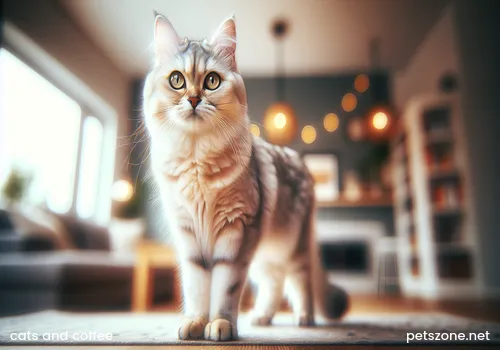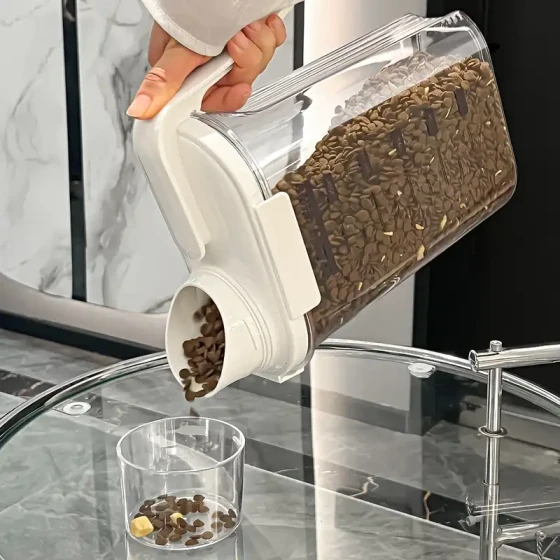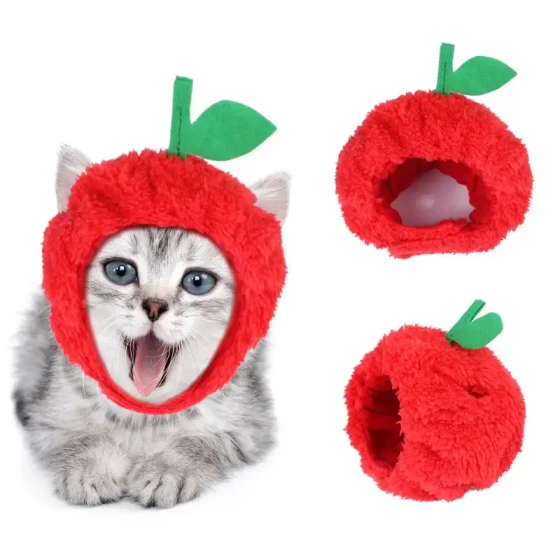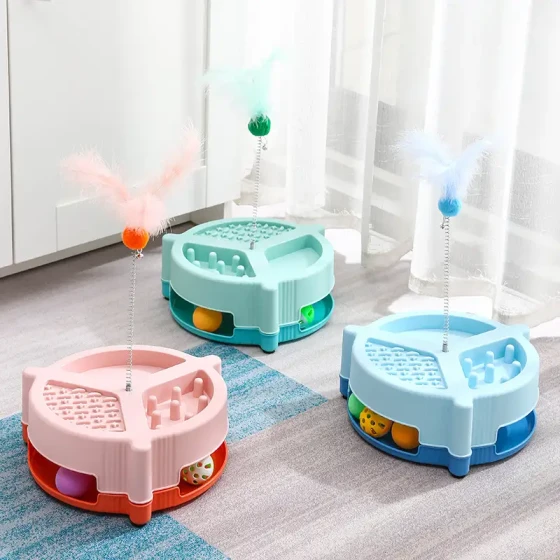Can Cats Drink Coffee_The Harm of Cats Drinking Coffee You Must Know
Can cats drink coffee? The answer is a loud “No.” Coffee is a stimulating beverage for humans, but for cats, it is a potential poison that can cause serious health problems and even threaten their lives.

We all know cats are very curious and sometimes want to taste what’s in their owner’s cup. However, coffee, tea, cocoa, and chocolate all contain caffeine and theobromine, which are dangerous to cats. Cats’ metabolism differs from humans; they cannot effectively break down and eliminate these substances, leading to accumulation in their bodies and causing toxic reactions. It’s like humans with allergies to certain drugs— even small amounts can trigger severe adverse effects.
Why Is Coffee Harmful to Cats?
Caffeine is a central nervous system stimulant. It can stimulate a cat’s heart, nervous system, and muscles. Even small amounts can cause increased heart rate, elevated blood pressure, and arrhythmia. Large amounts may lead to more severe symptoms such as tremors, seizures, coma, or even death. Imagine, while a strong cup of coffee may invigorate a human, the same caffeine dose is magnified many times over in a much smaller cat, which their body cannot handle at all.
Besides caffeine, coffee may contain other harmful ingredients to cats, such as milk (many cats are lactose intolerant) or sugar, but caffeine remains the main danger.
Symptoms of Caffeine Poisoning in Cats
If your cat accidentally drinks coffee or ingests caffeine-containing foods, observe closely for the following symptoms:
- Increased heart rate, arrhythmia: This is one of the most common early symptoms. The cat may appear restless.
- Overactivity or agitation: The cat may be unusually excitable, pacing or vocalizing continuously.
- Rapid or difficult breathing: Signs that the cardiopulmonary system is affected.
- Muscle tremors or spasms: Indications of nervous system stimulation.
- Vomiting and diarrhea: The body’s attempt to expel harmful substances.
- Elevated body temperature: Increased metabolism may cause a rise in body temperature.
- Seizures: Signs of severe poisoning requiring immediate medical attention.
- Weakness or coma: May occur in extremely severe cases.
The onset speed and severity of symptoms depend on the caffeine dose ingested, the cat’s size, and individual differences. Some cats may show symptoms within minutes, while others may take hours.
How Much Caffeine Is Dangerous for Cats?
Even small amounts of caffeine can be harmful to cats. Generally, caffeine poisoning symptoms may occur at 20 milligrams per kilogram of body weight, and doses between 100-150 milligrams per kilogram can be fatal.
Considering a typical cup of coffee (about 240 milliliters) contains approximately 95 milligrams of caffeine, even a small sip could pose a threat to a tiny cat. Espresso, coffee beans, coffee powder, certain teas, energy drinks, chocolate, cocoa products, and even some medications contain caffeine or related substances and must be handled carefully.
What to Do If Your Cat Drinks Coffee?
If you find your cat has drunk coffee or ingested caffeine-containing foods, don’t panic but take immediate action:
- Stay calm and assess the situation: Try to determine how much caffeine the cat has ingested and from what product.
- Contact a veterinarian immediately: This is the most critical step. Provide the vet with detailed information, including your cat’s breed, weight, the type and estimated amount of substance ingested, and the cat’s current condition. The vet will give professional advice and guide you on what to do next.
- Do not induce vomiting yourself: Unless explicitly instructed by a vet, do not try to make your cat vomit, as this could cause additional risks.
- Follow the vet’s instructions for treatment: The vet may advise taking your cat to a pet hospital immediately for emergency care such as gastric lavage, activated charcoal to absorb toxins, intravenous fluids to help remove toxins, and supportive treatment to control symptoms (such as seizure control or heart rhythm correction).
The sooner professional medical help is received, the greater the chance of recovery for the cat.
How to Prevent Cats from Contacting Caffeine?
Prevention is always better than cure. For your cat’s safety, please ensure the following:
- Keep coffee, tea, chocolate, and other caffeine-containing foods and drinks out of reach. Use covered cups or containers and clean up promptly after drinking.
- Educate family members and visitors not to feed cats human foods and beverages, especially those potentially dangerous to cats.
- Properly store coffee beans, coffee powder, and other ingredients to avoid accidental ingestion.
- Check cat toys carefully, as some low-quality toys may contain harmful substances.
Frequently Asked Questions
Q: Can cats drink a little bit of coffee?
A: Absolutely not. Even small amounts may contain relatively high caffeine levels that can trigger adverse reactions. For your cat’s health, completely avoid any caffeine exposure.
Q: Is decaffeinated coffee safe for cats?
A: Although decaf coffee greatly reduces caffeine content, it is not completely caffeine-free and may still contain other harmful ingredients. The safest option is to avoid giving any coffee products to cats.
Q: What if my cat drinks tea?
A: Tea also contains caffeine (especially black and green teas) and presents similar risks as coffee. If your cat drinks tea, treat it like caffeine poisoning from coffee: contact a vet immediately and monitor symptoms.
Q: Besides coffee, what other common foods are toxic to cats?
A: Besides caffeine, onions, garlic, chocolate, grapes, raisins, alcohol, and xylitol (found in sugar-free products) are toxic to cats and require special caution.
Summary
In conclusion, cats cannot drink coffee. The caffeine in coffee is toxic to cats and can cause symptoms ranging from mild discomfort to life-threatening conditions. As responsible pet owners, we must keep coffee and any caffeine-containing products out of reach of cats at all times. If accidents happen, immediately seek professional veterinary help. Protecting your cat’s health starts with daily care and attention.
Source:
According to reports from animal health organizations such as the American Society for the Prevention of Cruelty to Animals (ASPCA), cats are highly sensitive to caffeine. Toxic doses may vary slightly depending on individual differences, but generally, 20 milligrams per kilogram of body weight can cause poisoning symptoms.



